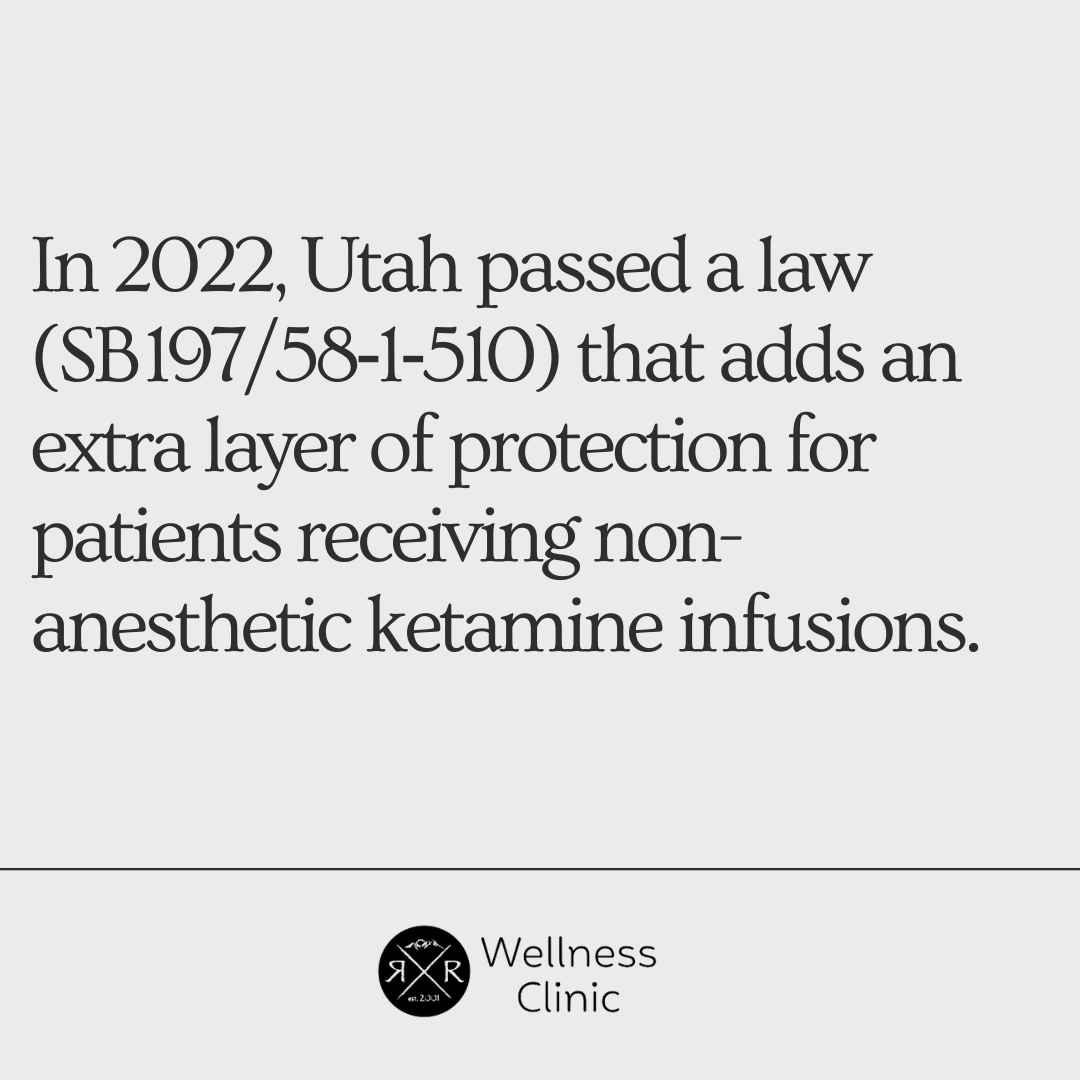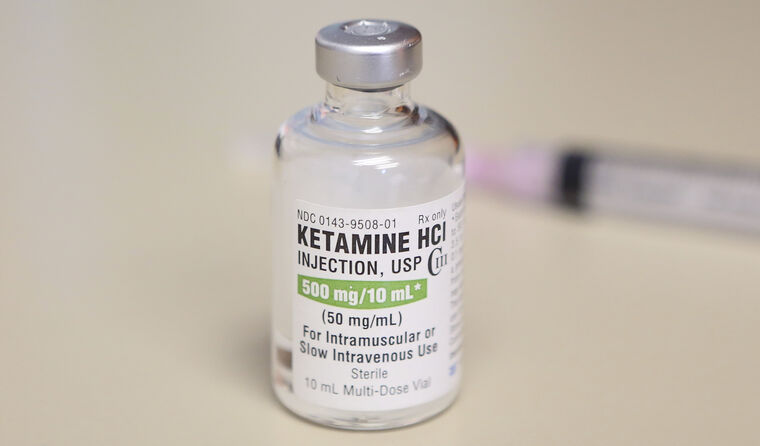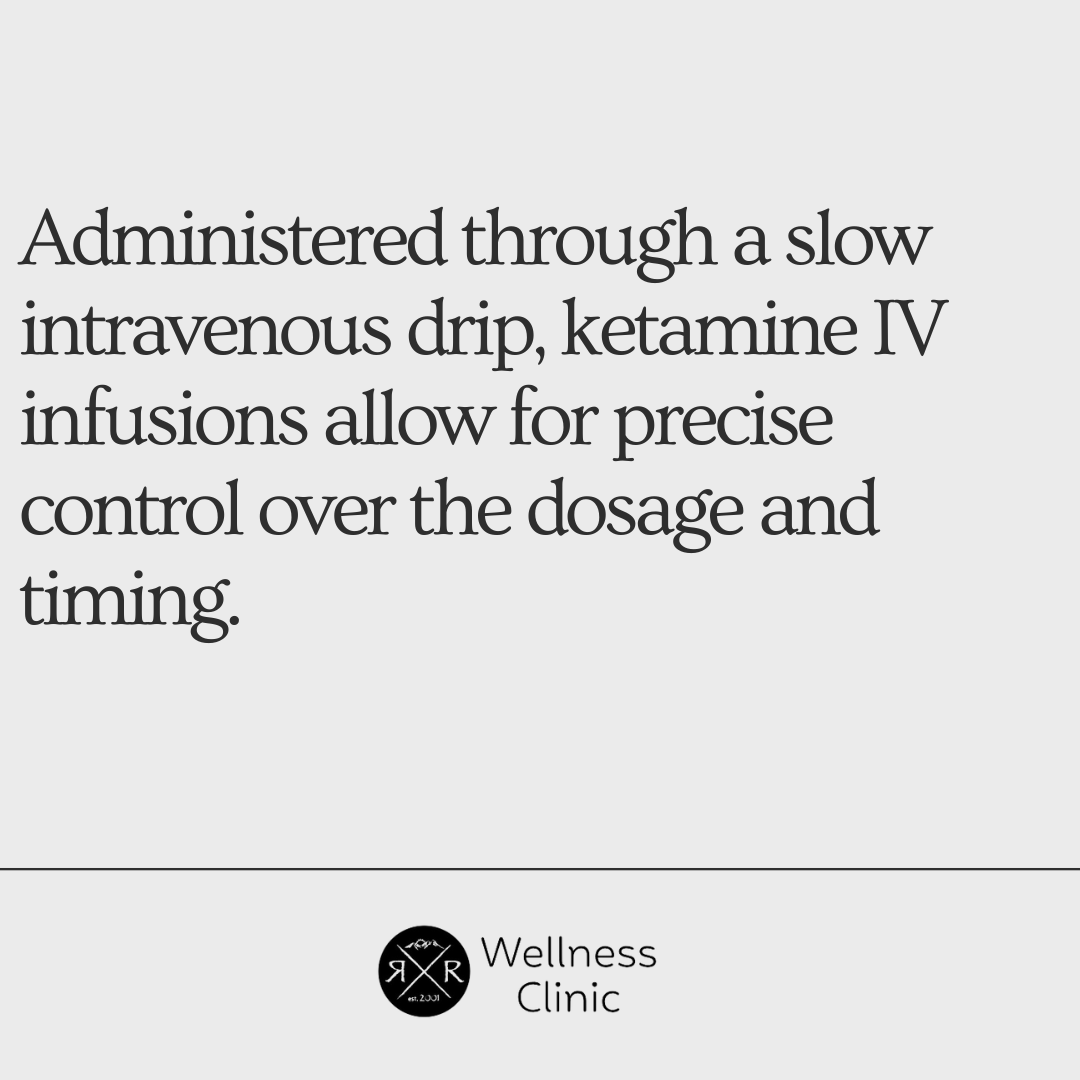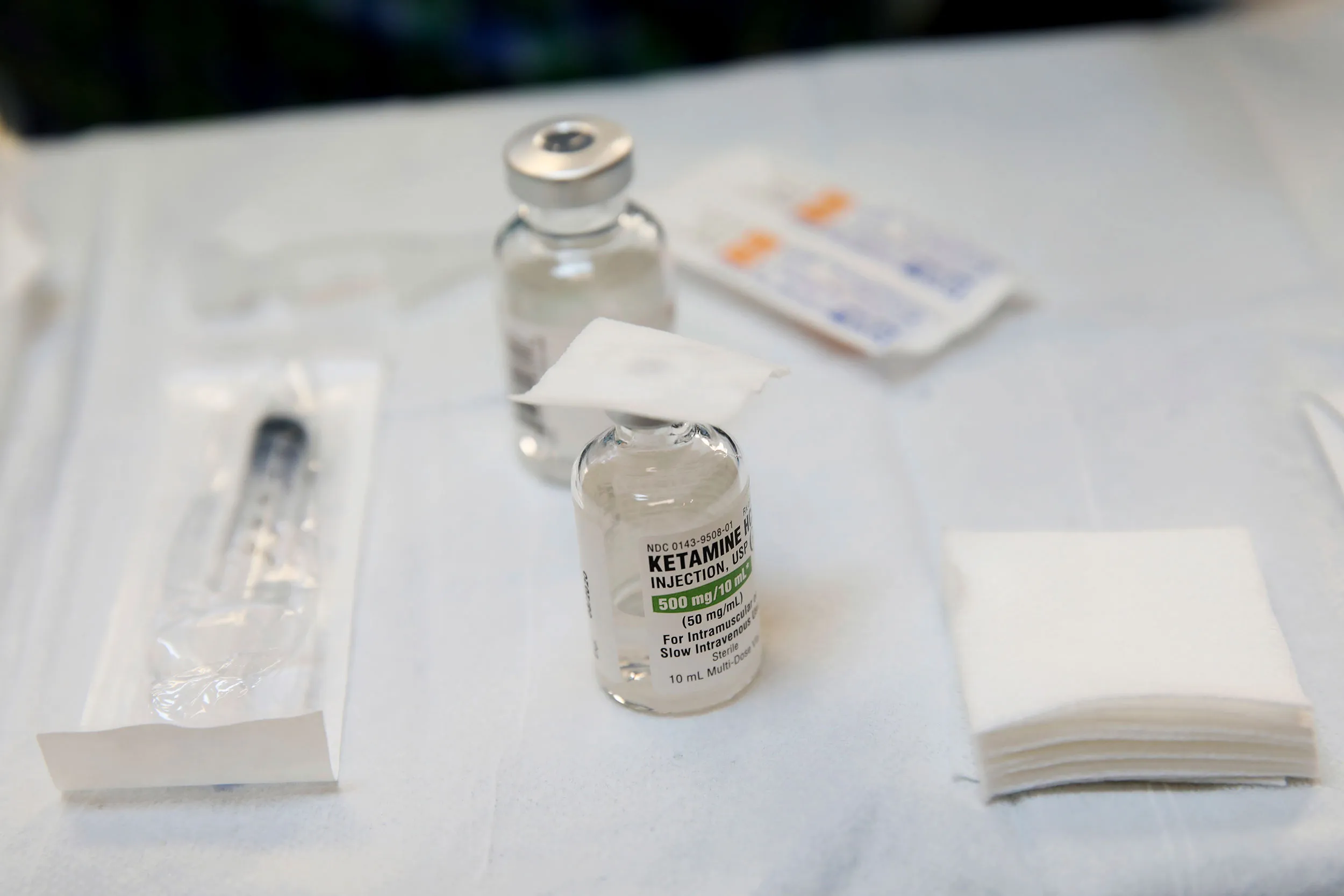Have you been exploring new options for mental health treatment? You’ve probably come across ketamine therapy. Known for its fast-acting effects, ketamine is making waves as one of the most promising drugs treating depression, especially for those who haven’t found relief with traditional medications.
In Utah, ketamine is legal. However, it’s not a free-for-all. The state enforces strict medical guidelines, meaning only licensed professionals in clinical settings can offer this treatment. That’s why choosing a reputable Utah ketamine clinic or Utah wellness clinic is essential if you're considering it.
In this blog, you’ll learn how ketamine therapy is regulated in Utah, what qualifications providers need, and what you should expect when seeking this innovative form of care.

Federal vs. State Regulations
When you’re looking into ketamine therapy, it’s important to understand how both federal and state laws come into play.
Federally, ketamine is a Schedule III controlled substance, approved by the FDA for use as an anesthetic. And doctors can use it off-label (which is completely legal) under medical supervision. That’s how ketamine therapy is helping people manage depression, anxiety, and PTSD across the country.
In Utah, there are a few more layers to consider.
Any provider offering ketamine treatment must have a valid Drug Enforcement Administration (DEA) registration and meet Utah’s specific licensing requirements. These rules are in place to make sure you’re getting safe, ethical care from trained professionals.
Utah-Specific Rules & Licensing
If you’re considering ketamine therapy Utah, there are some key state-specific guidelines you’ll want to know.
In 2022, Utah passed a law (SB 197/58‑1‑510) that adds an extra layer of protection for patients receiving non-anesthetic ketamine infusions. Under this law, clinics must have sedation-trained staff on-site during treatments, even if those staff members aren’t physically in the room for every infusion.
Beyond that, providers must follow Utah medical board regulations and meet federal DEA standards for storing controlled substances. That means every reputable ketamine clinic in Utah should have secure storage protocols, trained medical professionals, and up-to-date licensing.
These rules might sound technical, but they exist for one reason: your safety. When clinics follow these guidelines, you can feel more confident that you’re receiving ketamine therapy in a setting designed to support both your mental health and your physical well-being.

Types of Ketamine Therapy in Utah
Ketamine therapy isn’t limited to a single method. In Utah, clinics typically offer two main options, each designed to deliver therapeutic benefits in a controlled, clinical setting.
IV Ketamine Infusions
Ketamine therapy IV infusion is the most common method used in Utah clinics. Administered through a slow intravenous drip, ketamine IV infusions allow for precise control over the dosage and timing. They're often used to treat conditions like depression, PTSD, and anxiety, and are carefully monitored by sedation-trained medical staff during each session.
Intranasal Spravato (Esketamine)
Spravato is an FDA-approved nasal spray version of esketamine, a close chemical cousin of ketamine. It's specifically approved for treatment-resistant depression and must be given at certified clinics under a program called REMS (Risk Evaluation and Mitigation Strategy). After each dose, you’ll stay at the clinic for observation, typically around two hours.
Both options are effective, but the right one for you depends on your condition, treatment goals, and medical history. A licensed ketamine provider in Utah can guide you through the decision process.

Choosing a Legitimate Utah Clinic
Now, the question is: How do you choose a legitimate Utah ketamine clinic? Here’s what to look for:
- DEA registration and state licensure. Make sure the provider is legally authorized to administer ketamine and is licensed to operate in Utah.
- SB 197 compliance. Clinics should have sedation-trained staff on-site during non-anesthetic infusions, as required by Utah law.
- Sedation monitoring and emergency readiness. Look for facilities with real-time monitoring, clear emergency protocols, and access to qualified medical personnel.
- Experienced, licensed clinicians. Your treatment should be supervised by professionals trained in both ketamine administration and mental health care.
What Patients Can Expect
Once you’ve chosen a reputable Utah wellness clinic, you’ll go through an intake process designed to ensure ketamine therapy is safe and appropriate for you.
This usually starts with a full medical and psychiatric evaluation, where the provider reviews your health history, current symptoms, and treatment goals. Many clinics also help you explore payment options, including insurance, FSA, or HSA accounts.
Your treatment protocol will depend on your needs, but most ketamine therapy plans involve multiple sessions over a few weeks.
IV infusions or nasal treatments are administered in a calm, monitored setting and can last anywhere from 40 minutes to two hours. You may feel groggy, dissociated, or emotionally sensitive afterward, so clinics often recommend bringing someone to drive you home.
Aftercare matters, too. A quality clinic will help you integrate your experience with follow-up support, therapy referrals, or continued care.

Conclusion
Ketamine therapy is a promising option if you’re seeking fast, effective relief from depression and other mental health conditions. Just keep in mind that in Utah, it's tightly regulated to ensure safety. From understanding federal and state laws to choosing a licensed provider, each step matters in making sure your treatment supports true healing.
At RR Wellness Clinic, you’ll find a trusted team dedicated to guiding you through every stage of your journey, from your first consultation to long-term recovery. Get in touch today!
Reviewed by:

